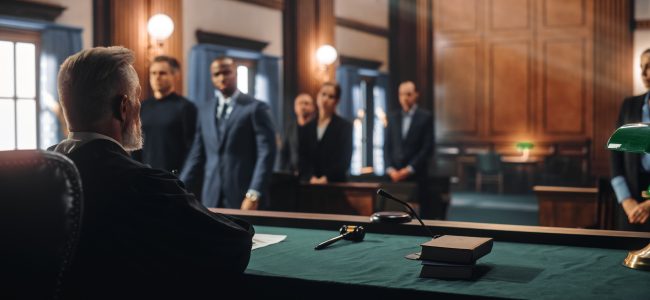BlogLine
“Improper” conduct by counsel during closing argument leads to new trial
3/13/24

By: Robert Chadwick
It is not uncommon during closing argument for a lawyer to refer to an opposing side’s case as “ridiculous,” “absurd,” or “insulting.” Such hyperbole is generally not considered to be sufficiently prejudicial to warrant a mistrial or new trial.
But what happens if the conduct of counsel during closing argument goes beyond hyperbole as to the merits and includes personal attacks against the opposing party and legal counsel? Can such personal attacks warrant a mistrial or new trial?
These were the questions presented by an appeal of a civil defense verdict before the Fifth Circuit Court of Appeals in Clapper v. American Realty Investors, Inc. (No. 21-10805). The plaintiff-appellant alleged a new trial was warranted because the defense attorneys engaged in the following conduct during closing argument:
- Throwing a box of tissues at plaintiff’s counsel stating: “I know y’all have a potentiality of crying, y’all might need Kleenex during my [closing].”
- Saying that if plaintiff’s counsel were his child he would have “spanked” him for asking so many leading questions.
- Claiming that if the plaintiff’s counsel had accused him of perjury in the street rather than in the court he would have “kicked his butt” and declaring “I don’t care if I was half-blind and half-lame, I would have found the strength to whop his a–.”
- Accusing plaintiff’s counsel of hiding evidence and calling him an “embarrassment to the legal profession.”
- Calling the actions of plaintiff’s counsel “low class,” “classless,” “ruthless,” and “disgusting.”
- Implying that plaintiff’s counsel had paid a witness to testify and referring to plaintiff’s expert witness as a “paid prostitute from Michigan.”
- Calling plaintiff’s counsel a “dishonest broker” who was “deceitful and deceptive” and saying “where I come from, we don’t listen to another germ that comes out of that person’s mouth.”
- Characterizing the plaintiff as a “billionaire with a 70-foot yacht” and a “financial pimple.”
- Mentioning several times that the plaintiff was from Michigan, while also suggesting that people from Michigan have low moral standards.
- Opining that anyone who could drum up a lawsuit like the plaintiffs would “understand that they are going to meet their maker.”
- Discussing matters not on the record.
After analyzing such conduct, the Fifth Circuit concluded in a March 8, 2024, published opinion: “There is no doubt these remarks, considered collectively, extend far beyond permissible hyperbole or ‘expressive language’, and were designed to bias the jury against [the plaintiff] and his counsel …. These attacks ‘unquestionably tarnish[ed] the badge of evenhandedness and fairness that normally marks our system of justice.’…. These statements affected [the plaintiff’s] ‘substantive rights’ and warrant a new trial.”
Although the Fifth Circuit decision purports to turn on the substantive rights of the plaintiff-appellant, much of the opinion is devoted to the ethical responsibilities of lawyers as advocates. The opinion warns: “We remind all practitioners in our court that zealous advocacy must not be obtained at the expense of incivility.” It is thus not inconceivable that an additional motivation for the decision granting a new trial was the deterrence of “such unprofessional practices as those that occurred in this case.” All trial lawyers would do well to heed this warning.
For more information, please contact Bob Chadwick at bob.chadwick@fmglaw.com or your local FMG attorney.
Share
Save Print